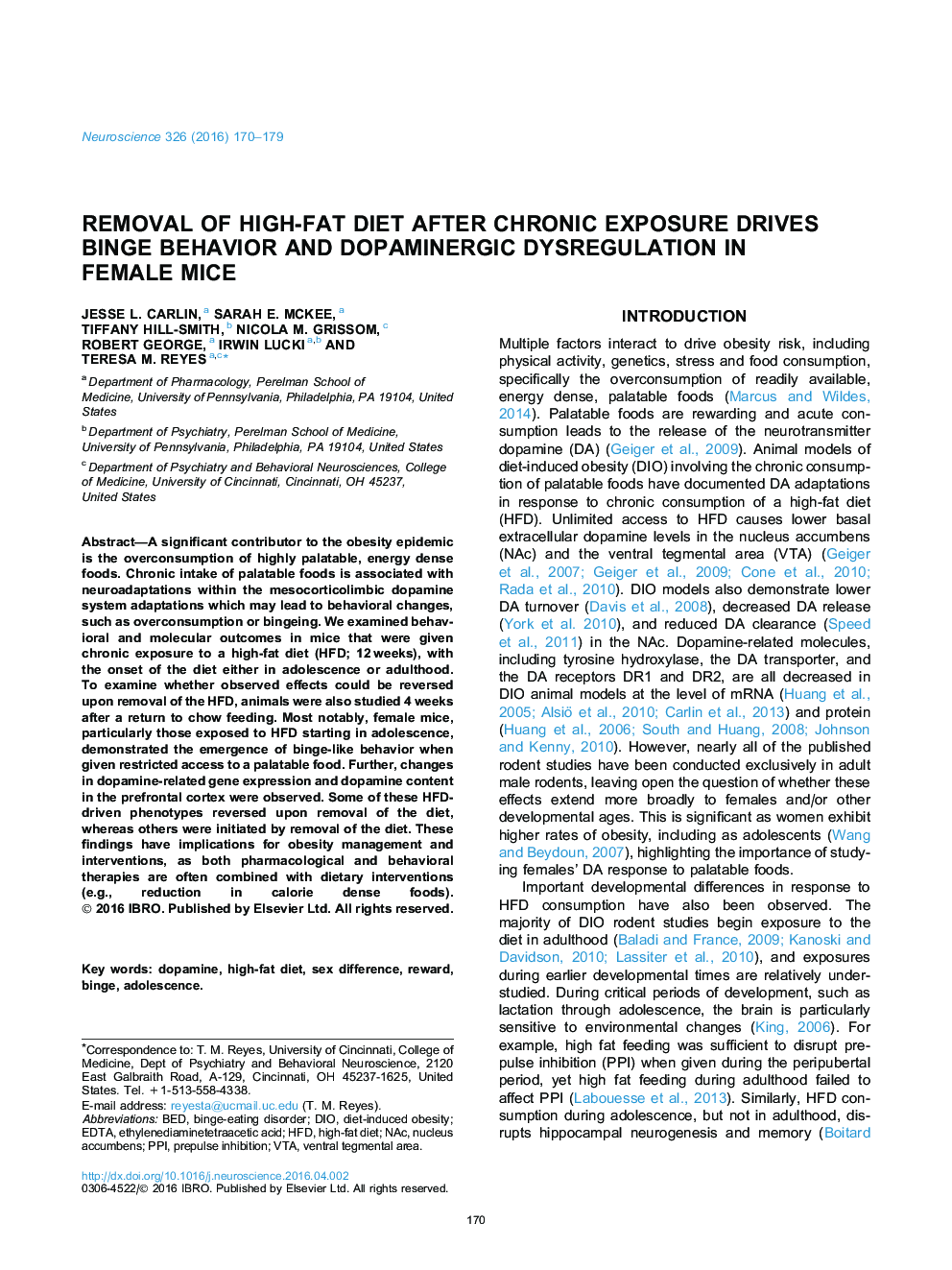| کد مقاله | کد نشریه | سال انتشار | مقاله انگلیسی | نسخه تمام متن |
|---|---|---|---|---|
| 6270991 | 1614750 | 2016 | 10 صفحه PDF | دانلود رایگان |
- Removal of high-fat diet after 12-week exposure drives binge behavior in female but not male mice.
- Dopamine receptor type 1 (DRD1) expression levels in the prefrontal cortex may be related to binge-like behavior.
- Some, but not all, behavioral and molecular responses to high-fat diet exposure are reversed after high-fat diet removal.
- Adolescent versus adult onset of high-fat diet consumption leads to more persistent behavioral and molecular changes.
A significant contributor to the obesity epidemic is the overconsumption of highly palatable, energy dense foods. Chronic intake of palatable foods is associated with neuroadaptations within the mesocorticolimbic dopamine system adaptations which may lead to behavioral changes, such as overconsumption or bingeing. We examined behavioral and molecular outcomes in mice that were given chronic exposure to a high-fat diet (HFD; 12Â weeks), with the onset of the diet either in adolescence or adulthood. To examine whether observed effects could be reversed upon removal of the HFD, animals were also studied 4Â weeks after a return to chow feeding. Most notably, female mice, particularly those exposed to HFD starting in adolescence, demonstrated the emergence of binge-like behavior when given restricted access to a palatable food. Further, changes in dopamine-related gene expression and dopamine content in the prefrontal cortex were observed. Some of these HFD-driven phenotypes reversed upon removal of the diet, whereas others were initiated by removal of the diet. These findings have implications for obesity management and interventions, as both pharmacological and behavioral therapies are often combined with dietary interventions (e.g., reduction in calorie dense foods).
Journal: Neuroscience - Volume 326, 21 June 2016, Pages 170-179
